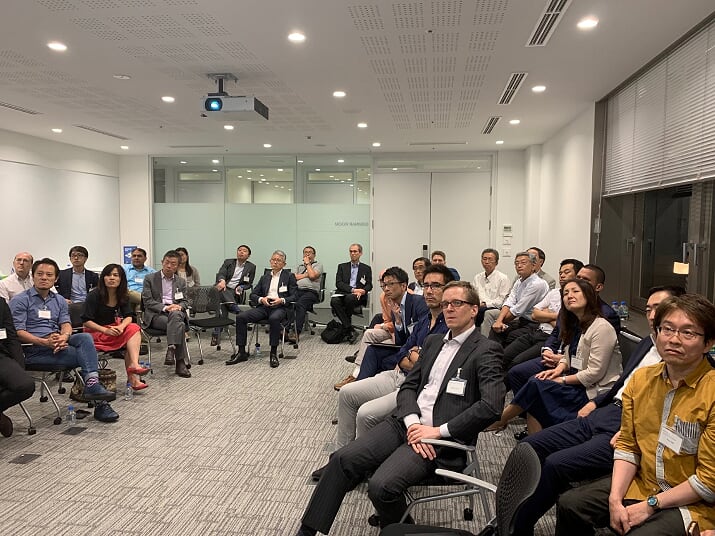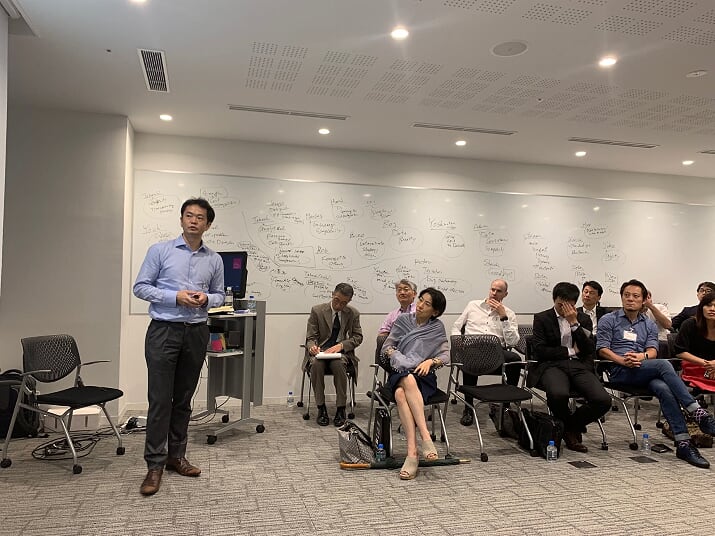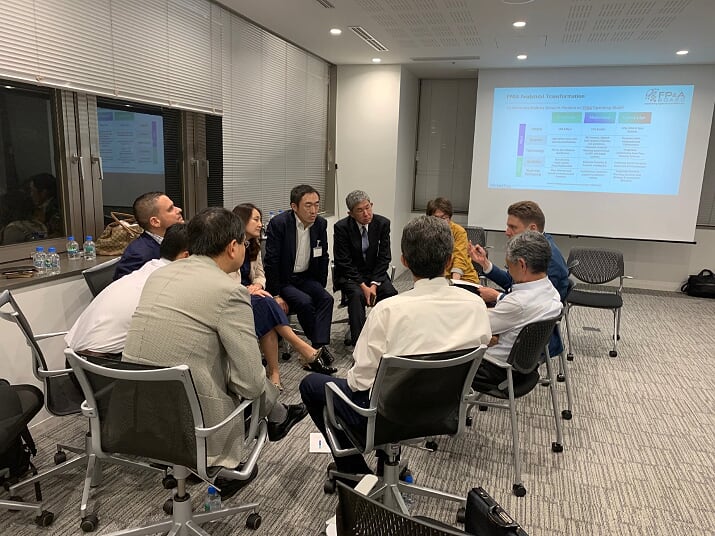 Tokyo FP&A Board meeting was held on the 27th June 2019, and a lot of financial professionals got together to talk about “FP&A Analytical Transformation”, the main theme of the night.
Tokyo FP&A Board meeting was held on the 27th June 2019, and a lot of financial professionals got together to talk about “FP&A Analytical Transformation”, the main theme of the night.
Approximately 40 attendees packed the meeting room of the Michael Page Tokyo office. They were CFOs, finance directors or heads of finance of global top-rank companies in Japan. Even though they work for a wide variety of industries, they seemed to be facing common issues in their daily work, so the meeting was a good opportunity to talk about such issues and gain inspiration from other colleagues.
In the beginning, Larysa Melnychuk, Founder of the International FP&A Board, introduced the concept of Analytical Transformation and she emphasized the relevance of the theme in today’s rapidly changing business environment. Then she asked the attendees some questions: what the lead-time is to release monthly forecast, how long it takes for annual budget formulation, or if AI is in the part of the finance process. Each organisation was in different stages of maturity in terms of FP&A analysis.
Then as a warm-up, participants were asked to introduce themselves and to name the biggest challenges in their daily work as FP&A practitioners. A wide array of challenges was raised, some of which were data quality issues, technology, communication with the business, or resource scarcity in the finance team.
At the meeting, the participants also talked about their actual experiences on the expected skill set of finance staff, challenges faced during ERP implementation, obstacles to efficient budget and forecast process and so on.
Best-practice Case Studies
The second Tokyo FP&A Board featured two real case studies. The first presentation was about launching new ERP as an initiative by the local finance division of AXA. The presenter, Amarnath Kamath, Head of Finance at AXA Technology Services Division Japan, emphasized that the biggest challenge was to involve the whole company in the project and to draw their active cooperation. Amarnath also mentioned key issues, such as process optimization, well-scheduled phase approach, choosing the right technology and strong commitment of key personnel.

The second presentation was about a case to apply machine learning to revenue forecasting. The presenter, Takeshi Murakami, Business Manager / Assistant to Microsoft Japan President at Microsoft Japan, explained that a strong commitment of the global CFO was a success factor of the project. He mentioned that it took two years for them to fully launch the system, but thanks to the introduction of machine learning their forecast improved the accuracy and efficiency dramatically. More information about the Microsoft case study is available here.
Group Discussion: Key Areas of Analytical Transformation
After a short break, the participants were divided into small groups to discuss 4 key areas of transformation, which were People and Culture, Processes, Technology, and Business Partnering. After the group discussion, each team made a presentation on their findings.
The People and Culture team talked about securing the right resources for the transformation process, particularly the importance to allow them to focus on transformation without daily routine work. They also indicated the importance of involving top management and show them the benefit of the transformation to put it in high priority.
The Process team discussed mainly the key issues to achieve high-quality budgeting and forecasting. They emphasized the importance of having logic behind the process of making a budget and forecast, particularly when the focus point of the budget is decided in a top-down manner. They pointed out that tools ad system for budgeting and forecasting should be aligned with such logic.

According to the Technology team, financers often bothered by unified information out of fragmentation of different data in different systems. The team agreed that investment in technology to unify the data would be necessary and the key to justify the investment cost is to convince management about the benefit of unified data, how it would support their decision-making.
The fourth team covered Business Partnering. They pointed out that as business partnering advances the required skillset for finance staff would change from excel skill and detail-oriented personality to better communication skill. They also mentioned the environment to stimulate cross-divisional exchange and interaction with the business would be key to promote Business Partnering. The environment would encourage more frequent and closer contact on both sides thus allow to exchange of views. The result would be more integrated processes and systems and people.
Conclusion
At the end of the agenda, Larysa made a closing remark to appreciate the participants for their active contribution, particularly to the two presenters who shared their precious experiences with the attendees. Warm applaud was given to Michael Page staff for their support on the logistic side.
Finally, attendees were invited to the networking session where people continued to talk actively over the wine and food. When the meeting was officially over, everyone was looking forward to meeting again in 2020.



